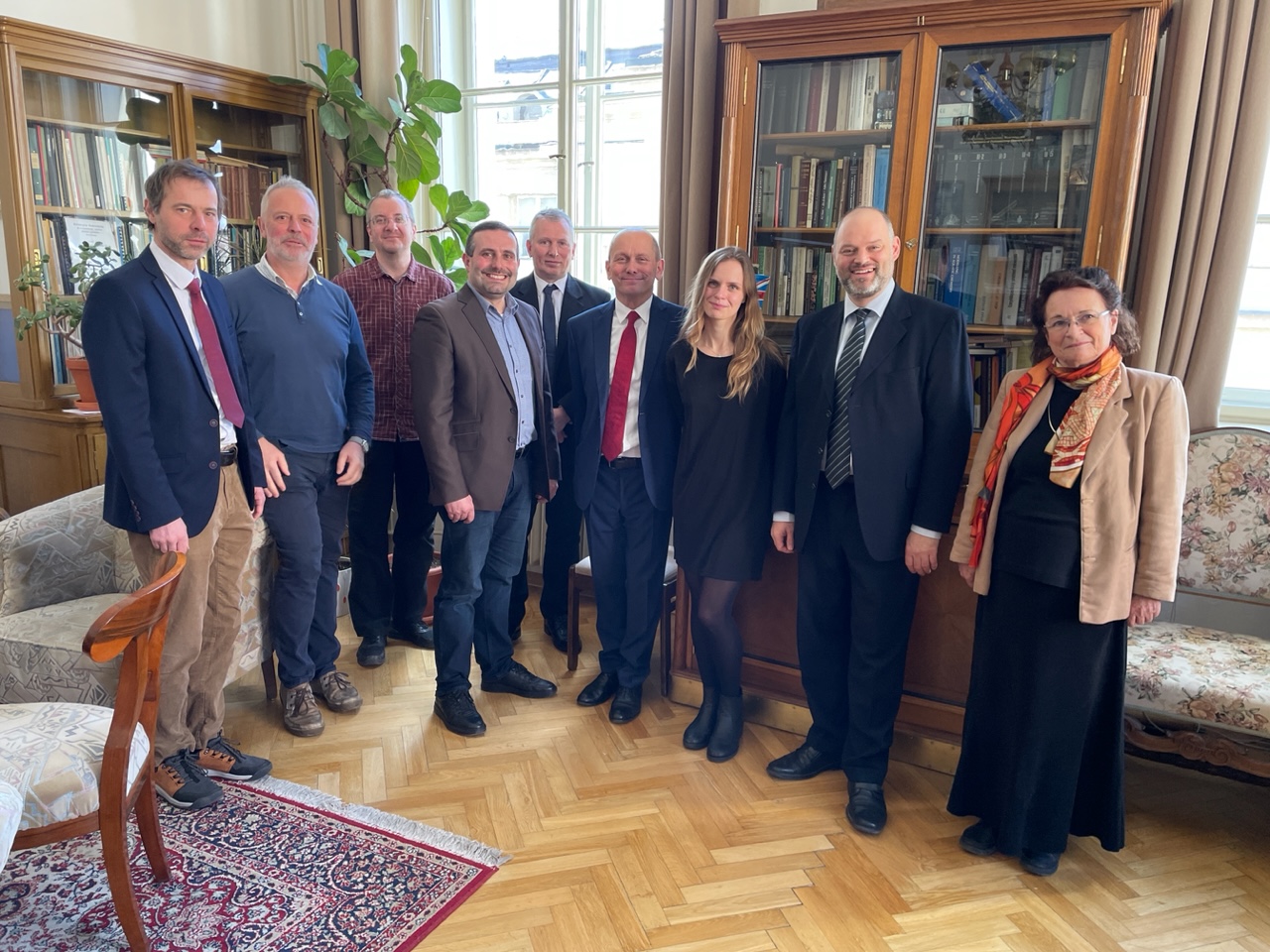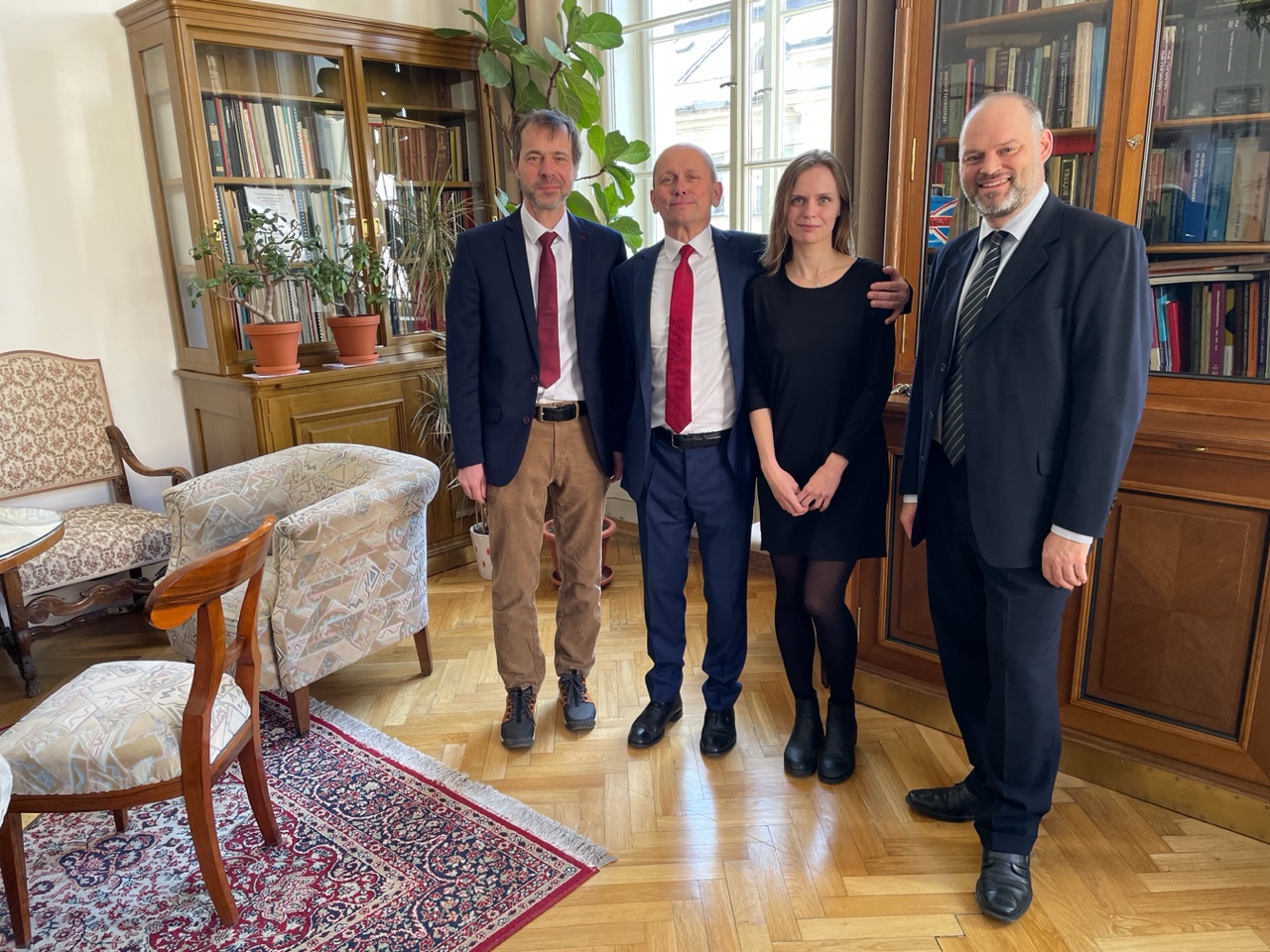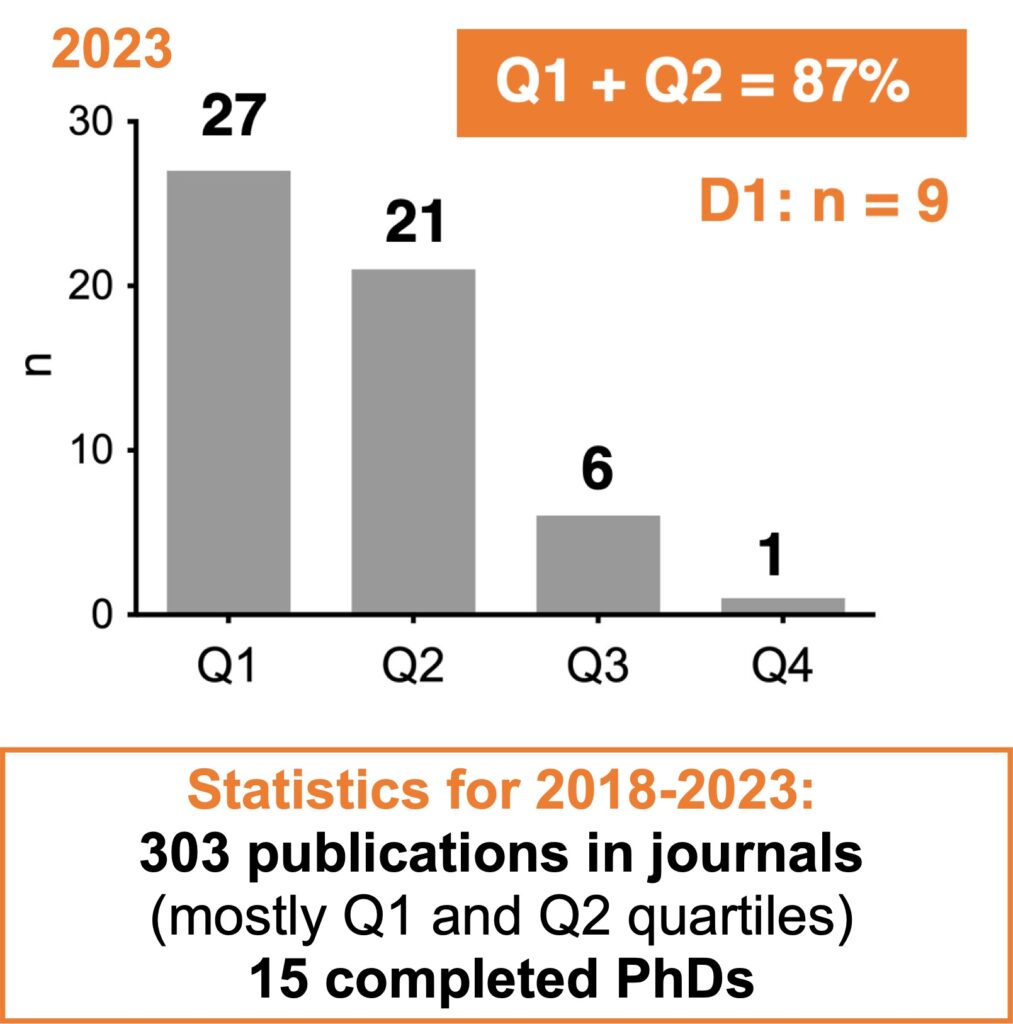
Farewell and final statistics



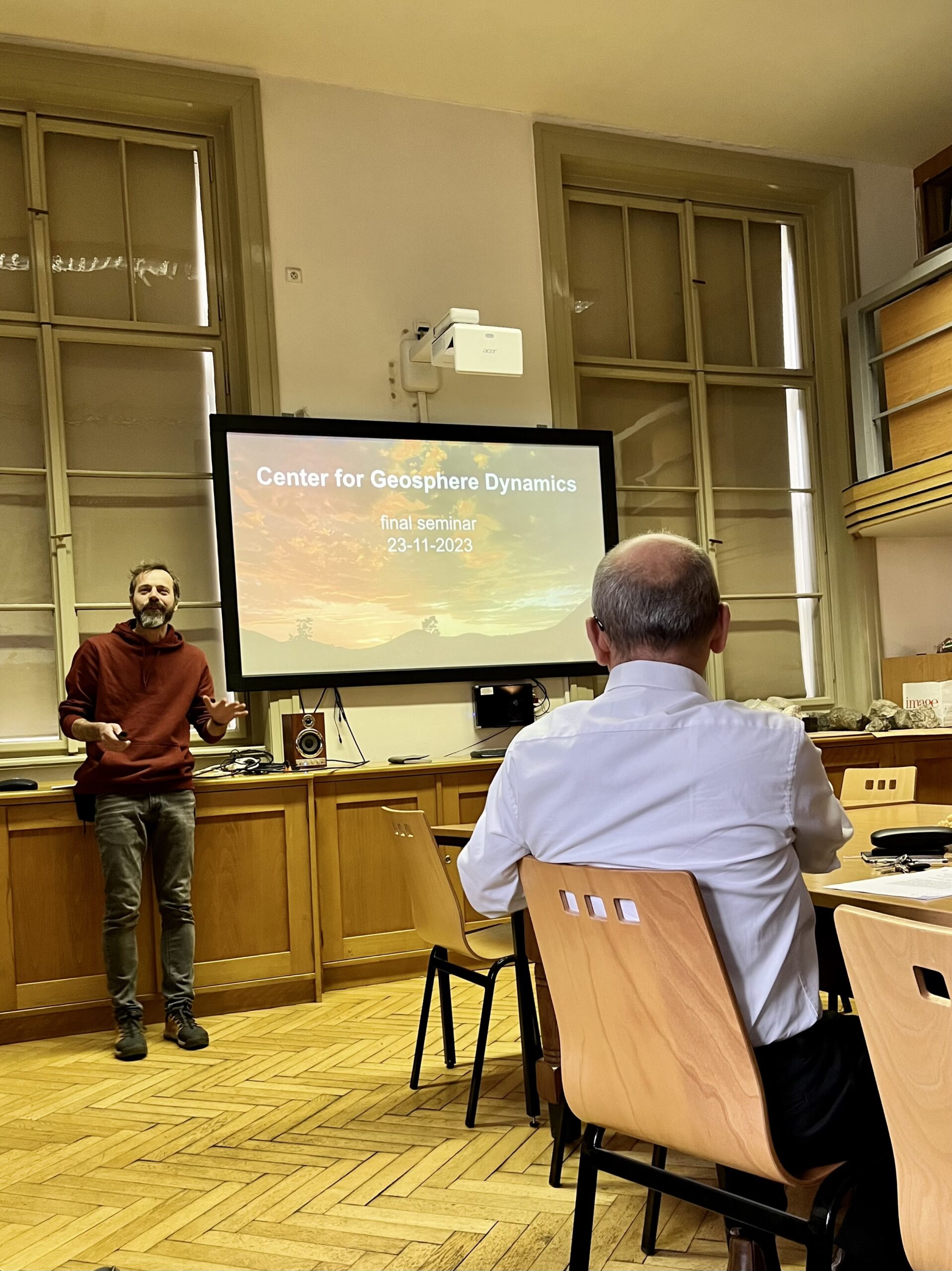
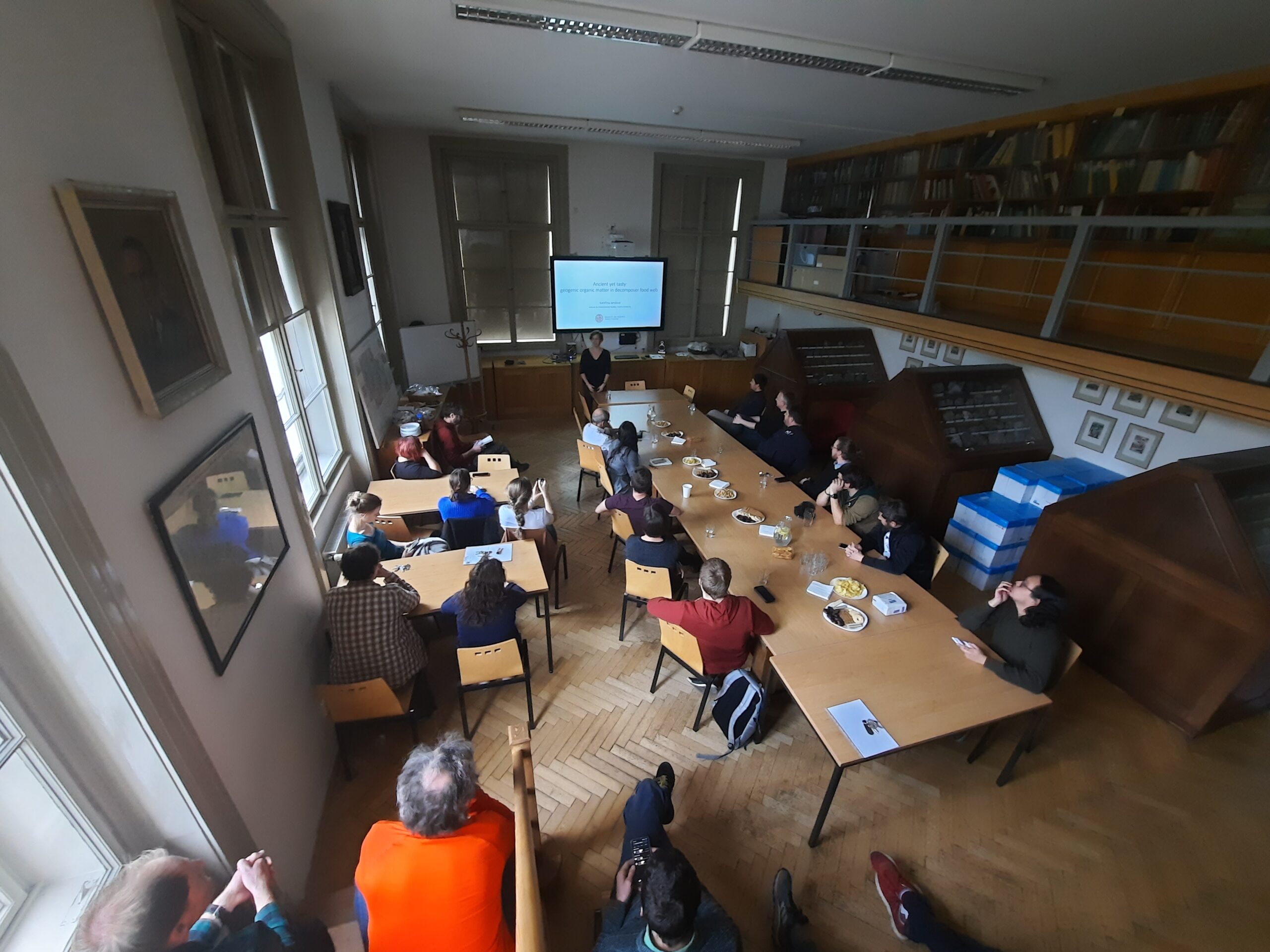
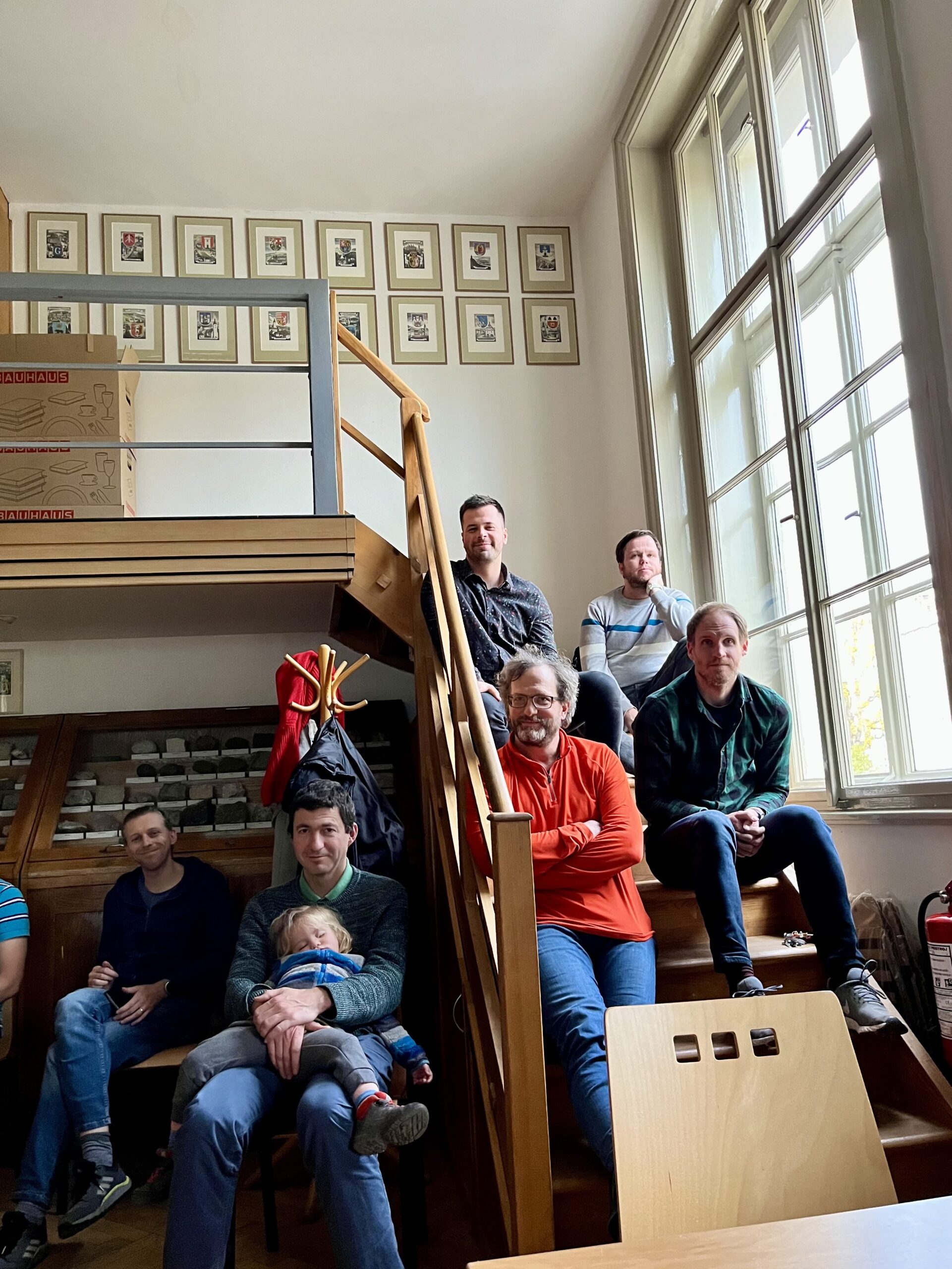
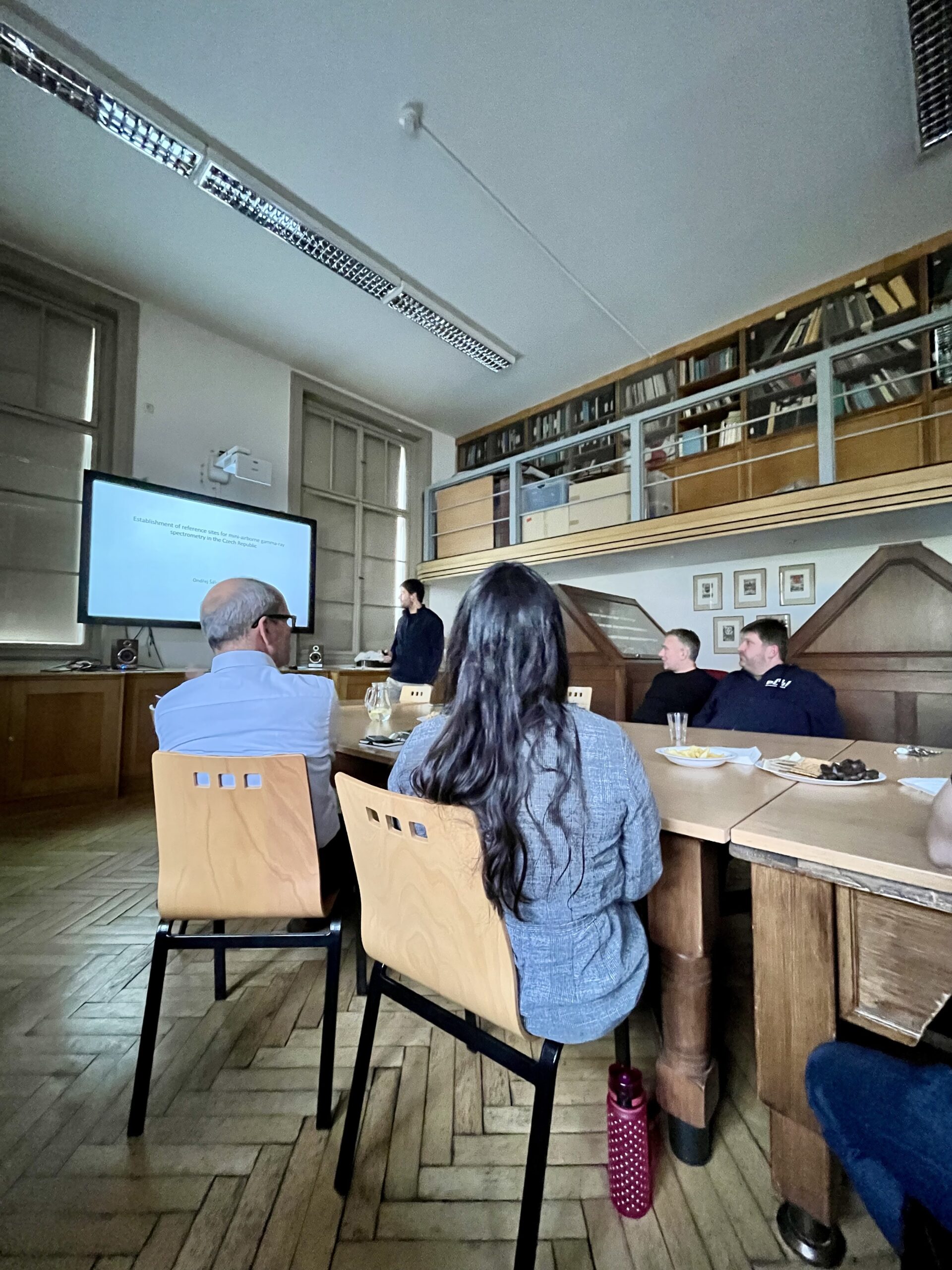
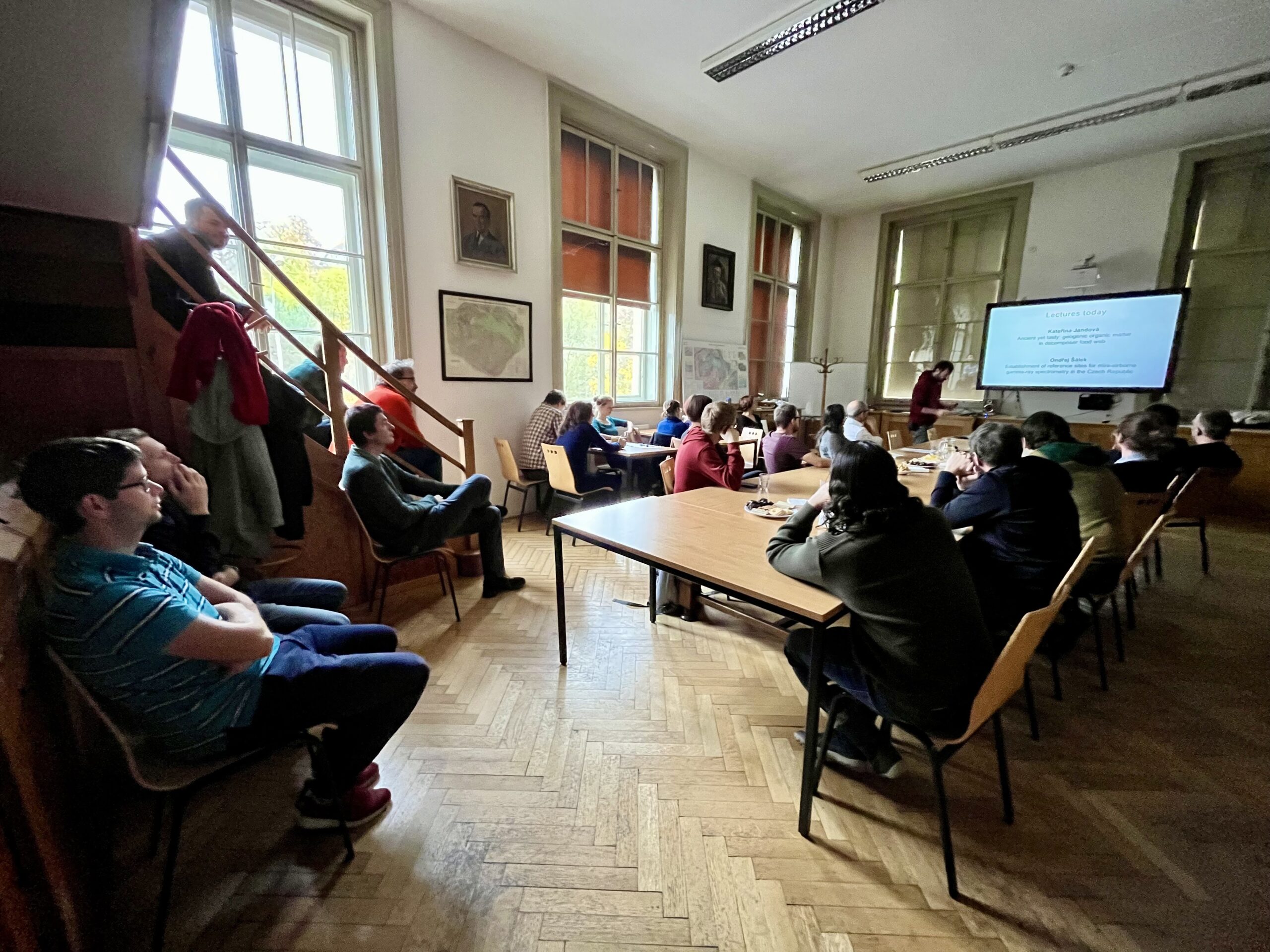
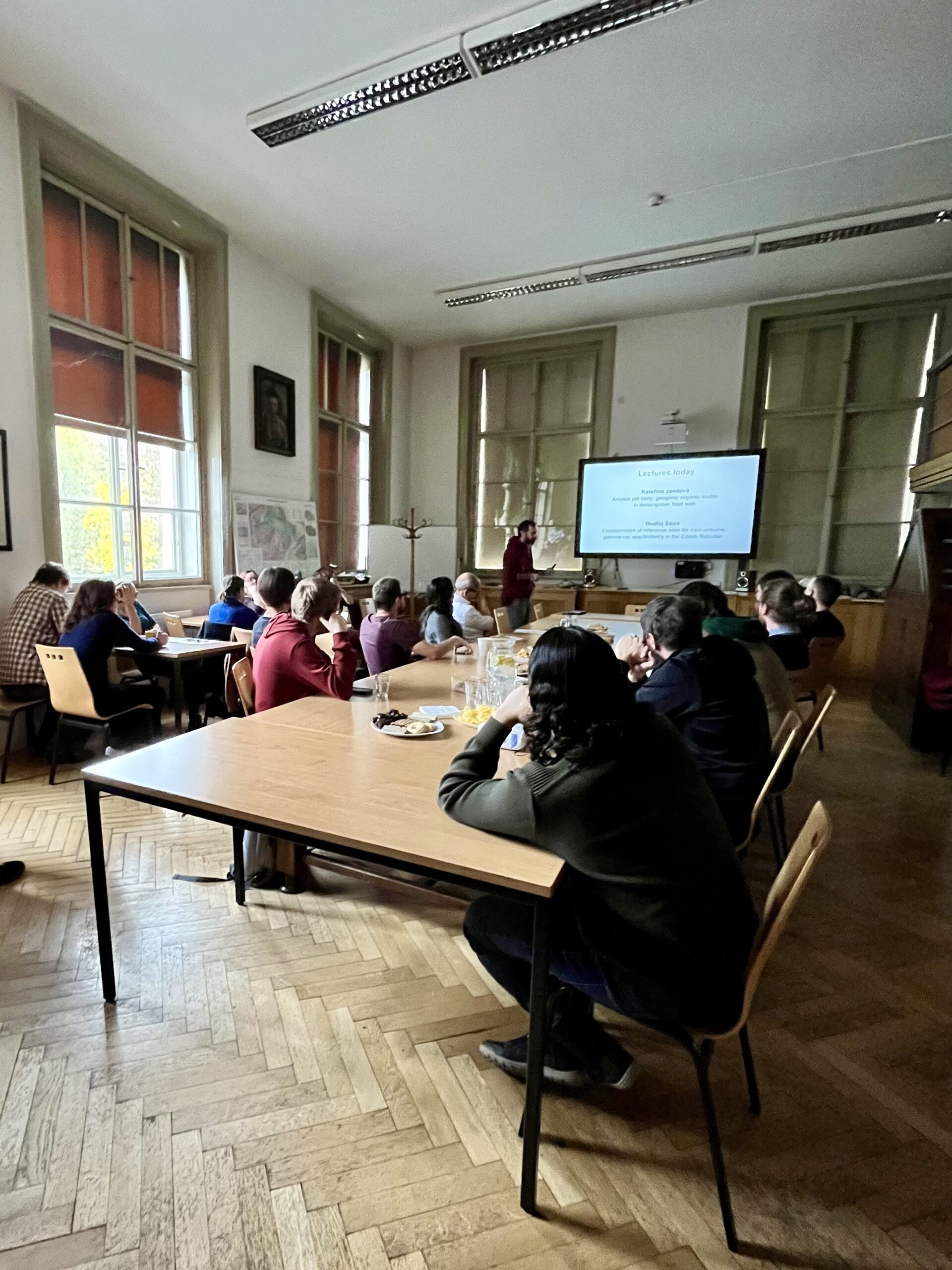
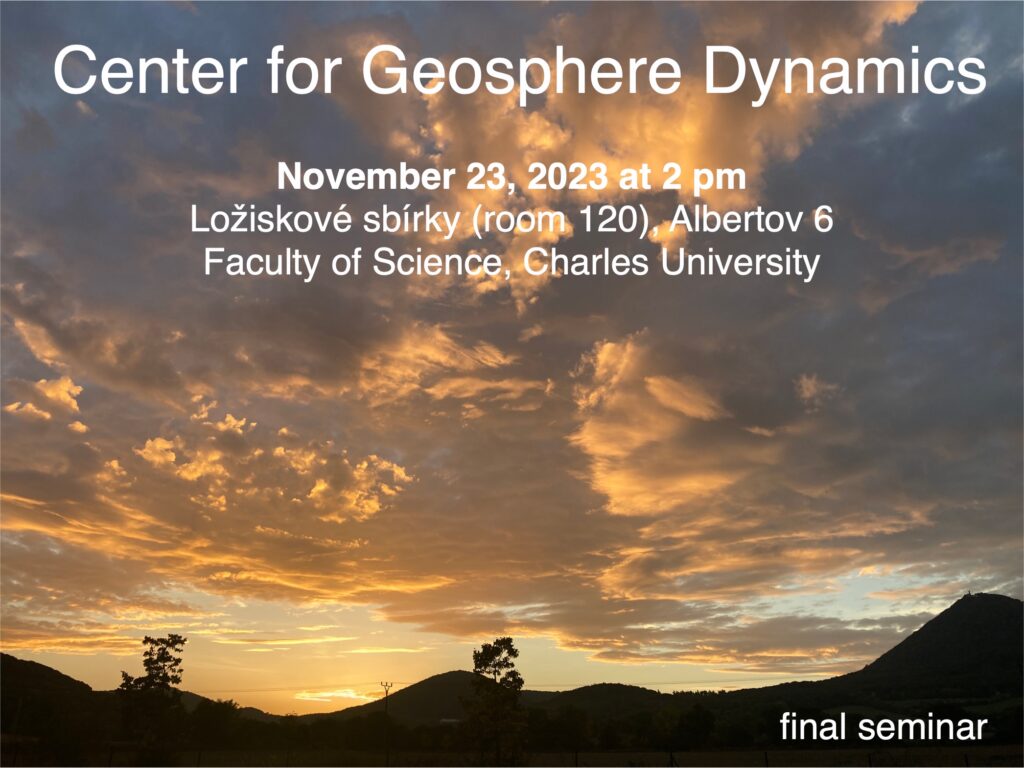
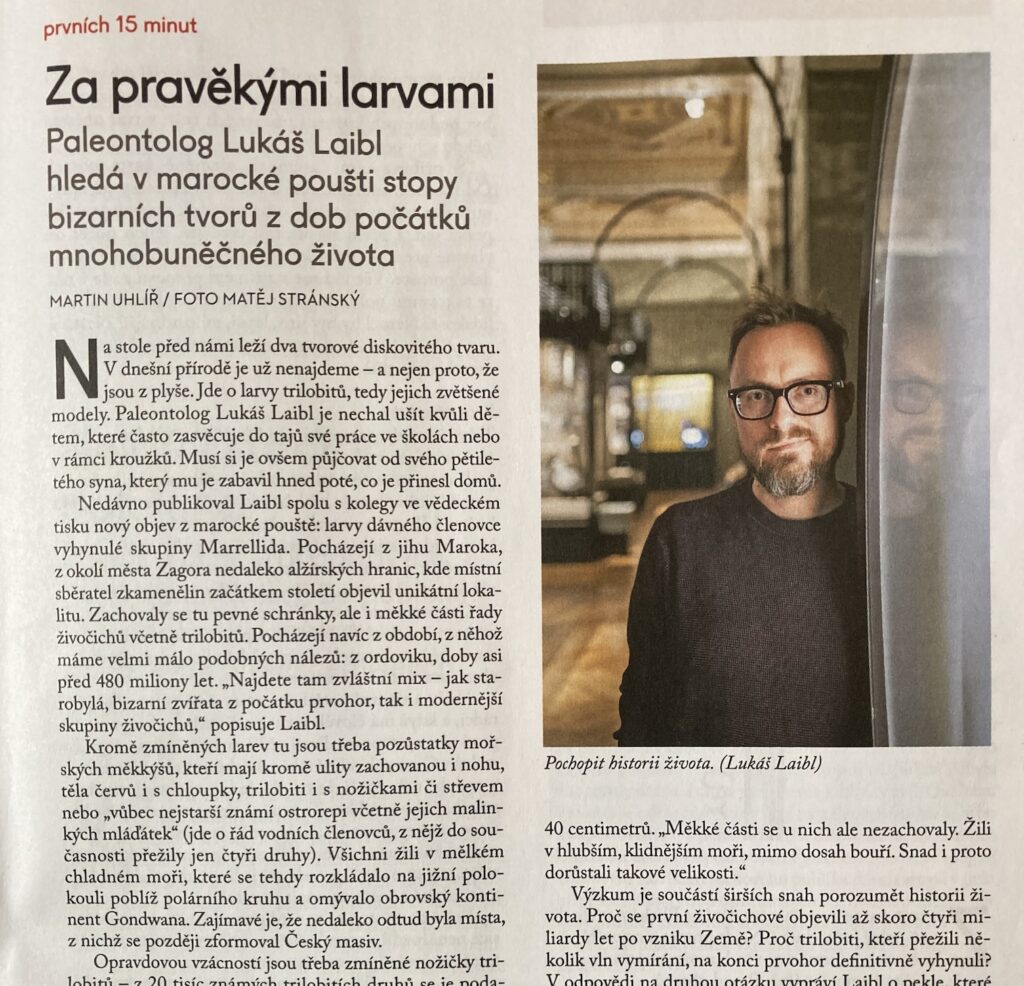
A brand-new article about our junior researcher Lukáš Laibl and his research on trilobites can be found the recent number of Respekt. The full version of the article is available (for subscribers) here.
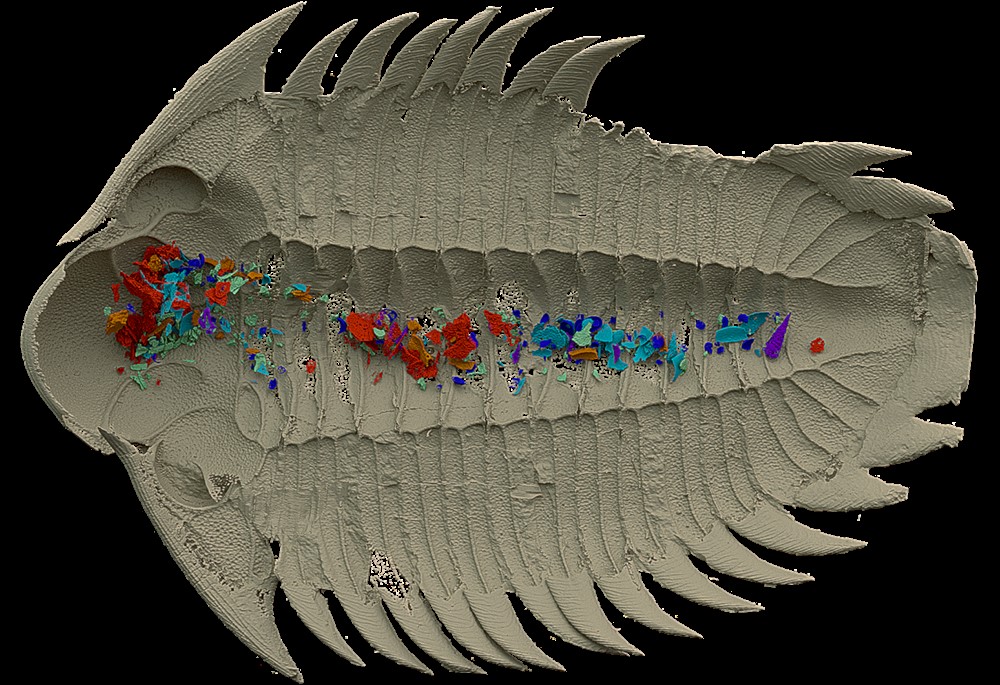
A team of paleontologists of the Institute of Geology and Paleontology (including a former CGD junior member Valéria Vaškaninová) together with their colleagues from other institutions described a 465 Ma old trilobite Bohemolichas with preserved gut contents in Nature. The trilobite is among the first Czech fossils that were examined at the European Synchrotron facility in Grenoble. This cutting-edge technology enabled to non-destructively visualise all fragments in the gut of the trilobite, some of them identifiable to the species level, at a high resolution. The digestive tract of the trilobite was tightly packed with calcareous shells and their fragments that belonged to marine invertebrates such as ostracods, bivalves and echinoderms. The authors propose that the trilobite was an opportunistic scavenger, a light crusher and a chance feeder that ate dead or living animals, which either disintegrated easily or were small enough to be swallowed whole, without any attempt to reject the hard shells. This indicates that they were not exposed to an acidic environment, similar as in modern marine crustaceans and horseshoe crabs, suggesting that it might be an ancestral character of arthropods. The research thus fills a fundamental gap in our understanding of trilobite ecology and their role in Paleozoic ecosystems.
Kraft P., Vaškaninová V., Mergl M., Budil P., Fatka O., Ahlberg P.E. (2023): Uniquely preserved gut contents illuminate trilobite palaeophysiology. Nature (DOI)
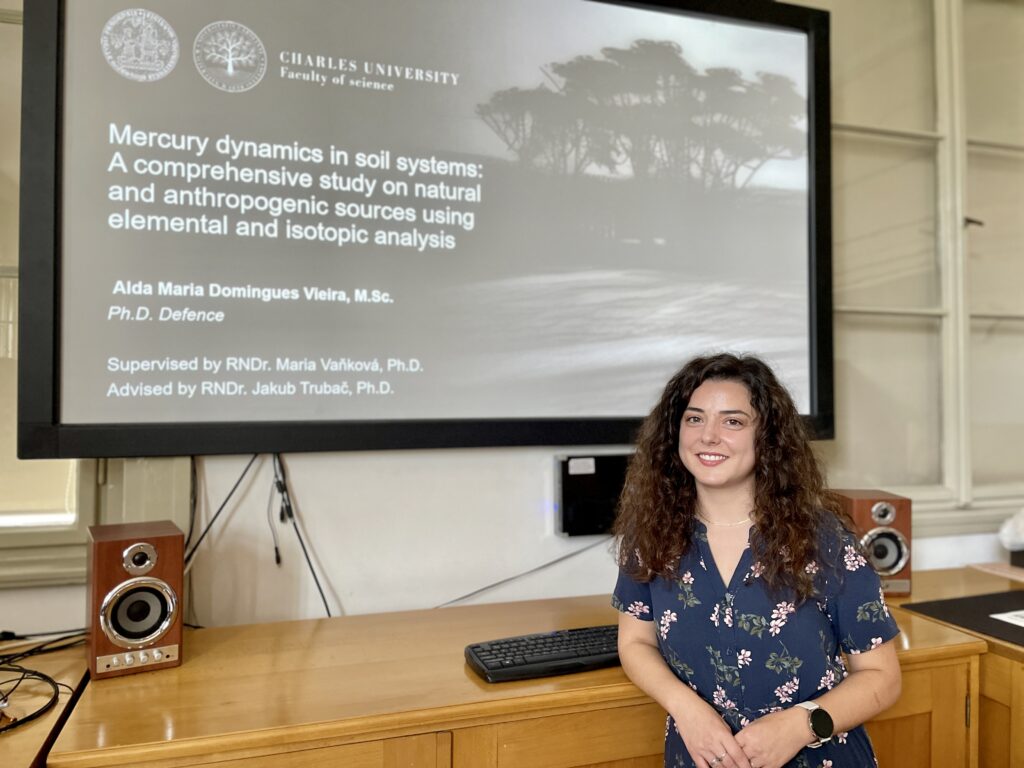
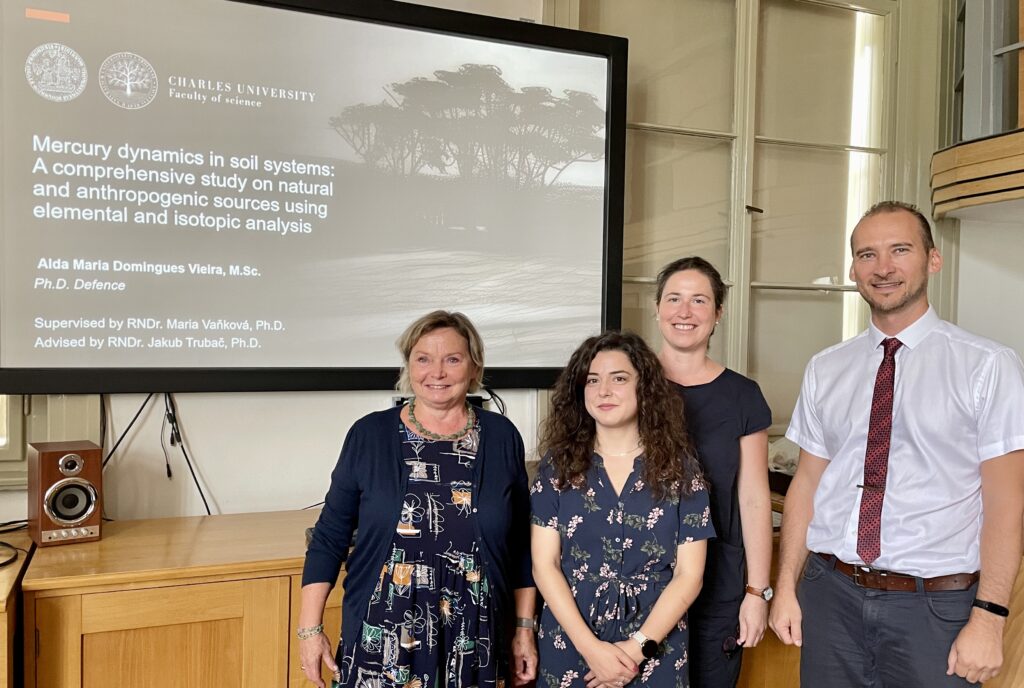
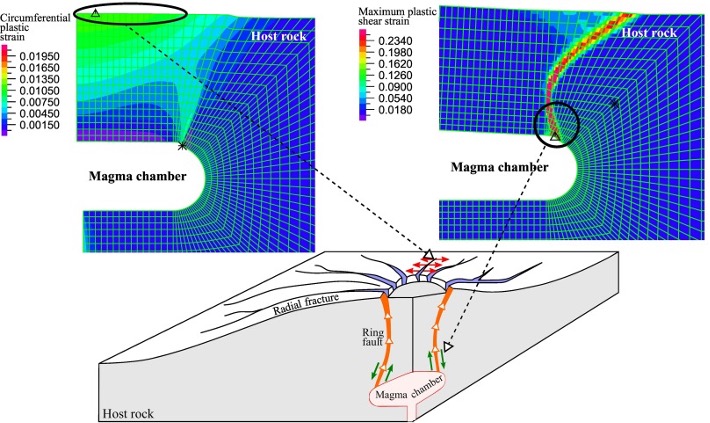
While the final manifestations of caldera-forming eruptions can be easily observed on the Earth’s surface and are thus relatively well studied, the physical conditions and causes of caldera collapse and the mechanisms of brittle failure of the underlying rocks are still a mystery. The aim of a long-standing project by a joint team from the Faculty of Science of the UK and the Czech Technical University in Prague was to understand under what conditions the gravitational collapse of calderas occurs and what effect the shape of the underlying magma mantle, its size and depth in the Earth’s crust has. New research has shown, using a combination of geological data and mathematical modelling, that magma pressure oscillations lead to intense brittle failure in places, and therefore to a reduction in the strength of the magma crust ceiling, but that collapse and caldera formation can only occur under specific conditions.
Somr M., Žák J., Kabele P., Tomek F. (2023): Analysis of fracturing processes leading to caldera collapse. Earth-Science Reviews 241, 104413 (DOI)
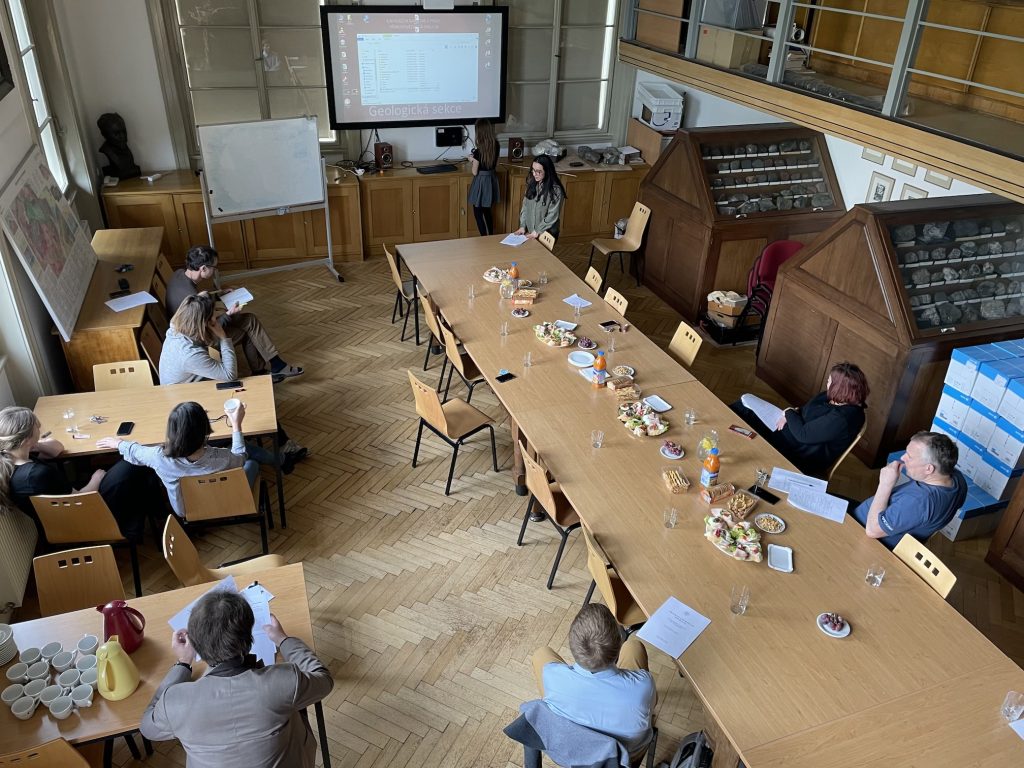
On April 27, 2023, we had a PhD conference of the Center with intimate and friendly atmosphere and excellent students’ presentations. The program and the book of abstracts can be downloaded from here. Thanks to the organizers!
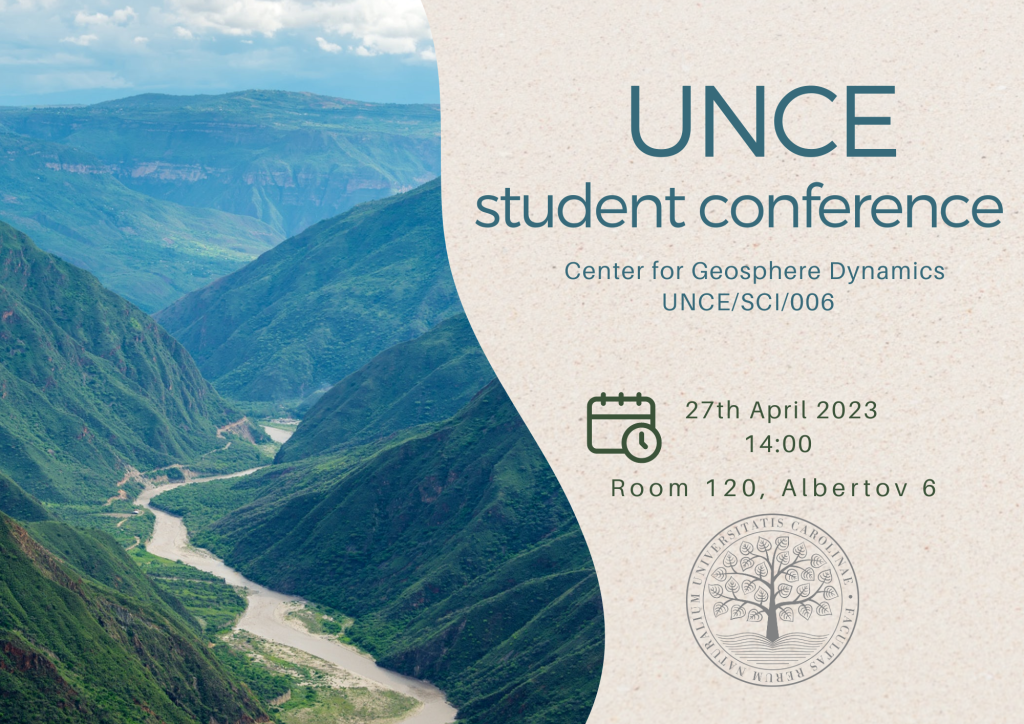
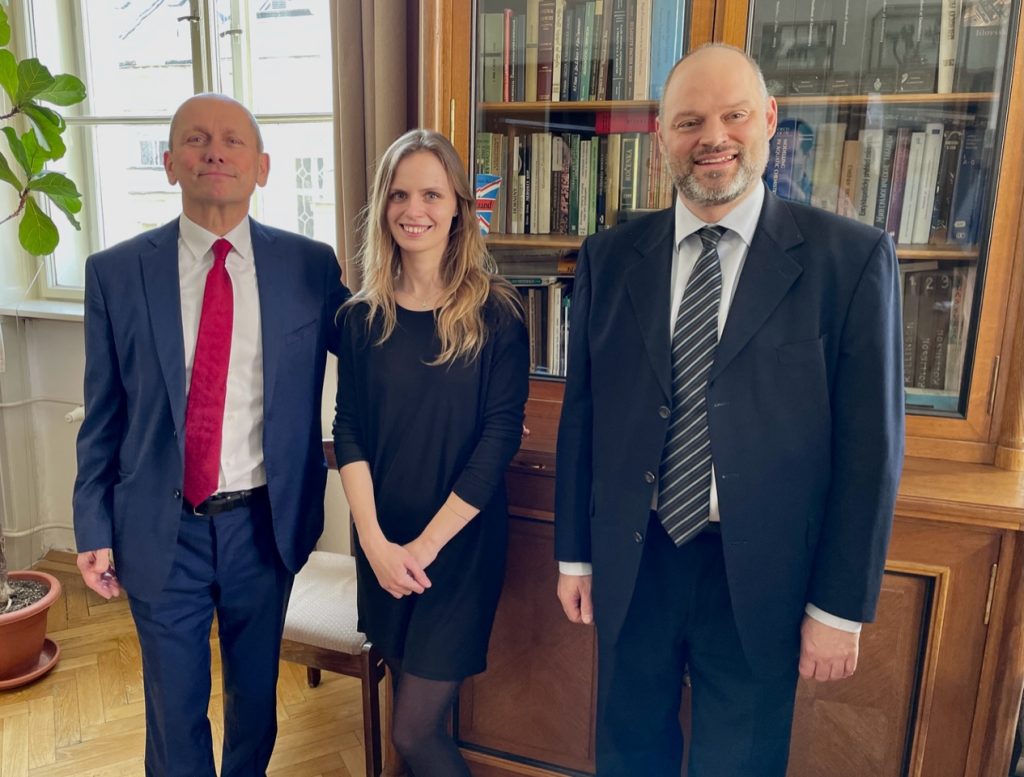
On Monday March 20, 2023, Kateřina Němečková associated to the Center for Geosphere Dynamics successfully defender her PhD thesis entitled „Detecting biomarkers of expremophiles in Martian analogues“ under the supervision of prof. Jan Jehlička. On the photo with her supervisor and one of the reviewers, prof. Peter Vandenabeele from Ghent University (Belgium) and other members of the comittee. Congratulations!
